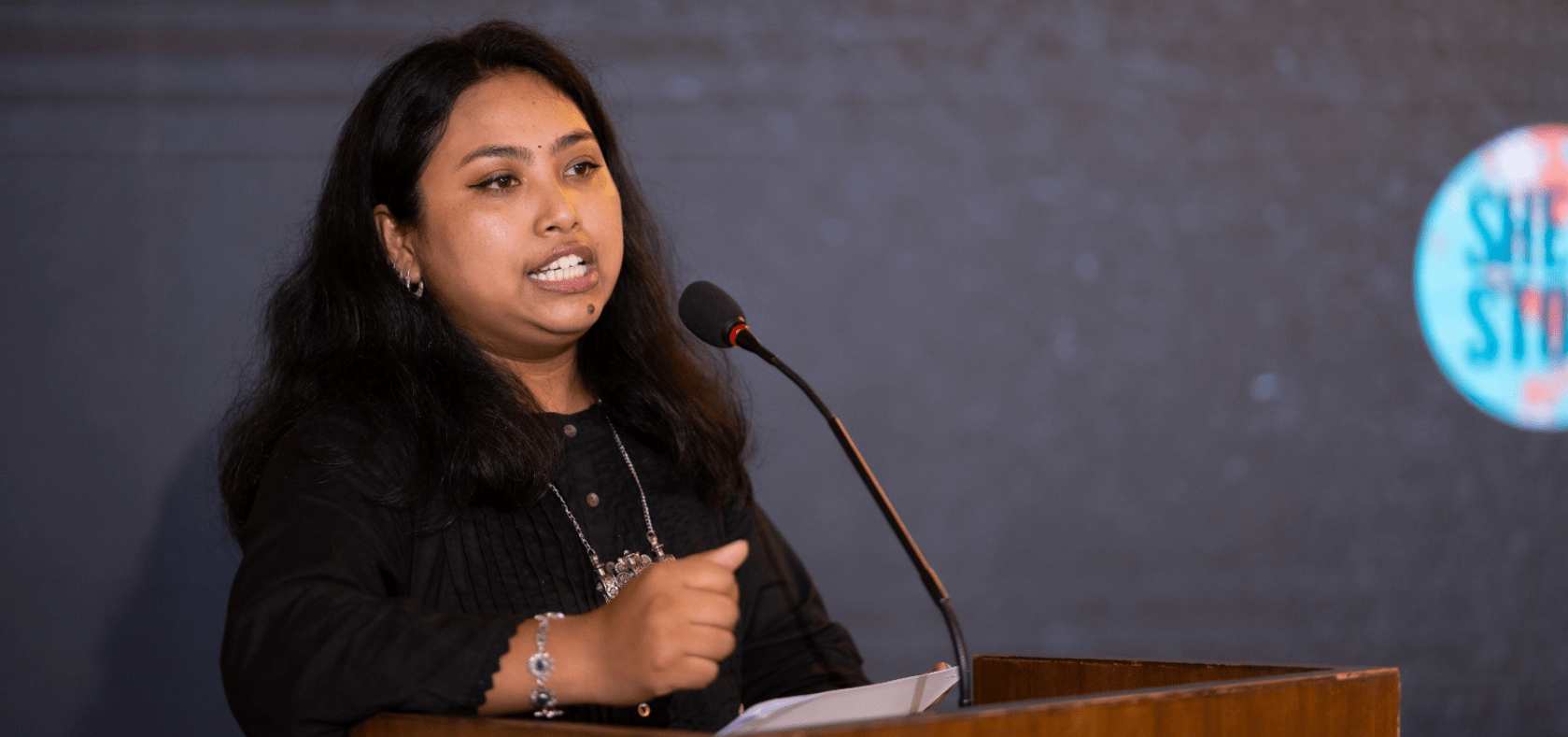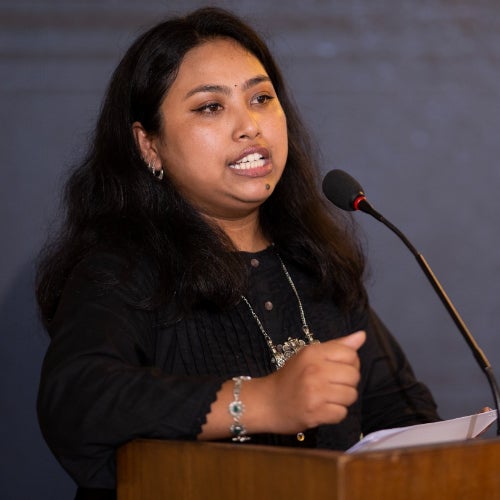Beijing+30 Youth Blog: Righting wrongs against indigenous women in Nepal
Date:
Author: Nagma Mali

When I think of equality, my grandmother comes to mind. She was a strong indigenous farmer who fought against social and institutional injustices all her life. I clearly remember when my grandfather passed away -- our culture only allowed men to perform death rituals, but my grandmother broke this tradition. As a result, I performed my grandfather's last rites at just 7 years old. This experience made me realize how deeply social and institutional systems have oppressed indigenous communities in Nepal.
The decade-long civil war aimed to end caste, class and gender discrimination, and the monarchy. After the peace agreement, Nepal became a democratic republic, giving people hope for freedom, equality and a dignified life.
However, indigenous, Dalit and other marginalized communities are still excluded from many opportunities. Indigenous women in particular face oppression from both the Government and patriarchal norms. Key issues include the citizenship bill and equal participation in government and in political leadership.
After the peace agreement, the Government promised that 33 per cent of parliamentary seats would be held by women. A quota system was introduced for indigenous women, Dalit women, and women from other minority communities. While this has helped some women leaders emerge, the women often face challenges like language barriers, lack of education, and geographical disadvantages. Jhowa B.K., a Dalit woman leader in the Karnali Provincial Assembly, gave a speech in Nepali, which isn’t her native language, and was mocked for it.
Global warming and climate change have also severely impacted indigenous women as many men migrate for work, leaving women to farm. Indigenous communities, who rely heavily on natural resources and agriculture, have seen their traditional livelihoods collapse.
A long history of marginalization, poverty and exclusion has limited indigenous women's opportunities to participate in decision-making. Indigenous communities are often unfairly seen as less intelligent and politically aware than others. Although they manage over 80 per cent of the biodiversity of Nepal, their deep knowledge of medicinal plants and traditional practices often goes unrecognized.
The Beijing Declaration and Platform for Action can play a crucial role in helping indigenous women gain skills, leadership qualities, access to quality education, and awareness about climate change impacts.
To address the challenges, I recommend that the Government:
- Ensure indigenous women are represented at all levels of government, not only by using quotas but also by creating an environment that supports their leadership, including through language assistance and leadership training programmes
- Implement and enforce laws that protect the rights of indigenous communities, especially in land ownership, cultural preservation, and access to natural resources
- Recognize and promote indigenous languages as a vital part of our national heritage, ensuring everyone can participate fully in public life regardless of their native language
- Help indigenous women adapt to climate change, especially those who depend on agriculture, by providing resources, education and sustainable farming practices
- Increase access to quality education for indigenous women, including scholarships and programmes that respect and integrate indigenous knowledge and traditions
Biography:

Nagma Mali is an indigenous woman in Nepal who advocates for feminism, LGBTQIA+ rights, transitional justice and peacebuilding. The enforced disappearance of her father during the civil war inspired her to raise the voices of marginalized people and to pursue justice. She is a board member of the Conflict Victim Women National Network, a non-governmental organization. Mali leads the provincial and district-level orientation programme on the Second National Action Plan to implement United Nations Security Council Resolutions 1325 and 1820 on women, peace and security.